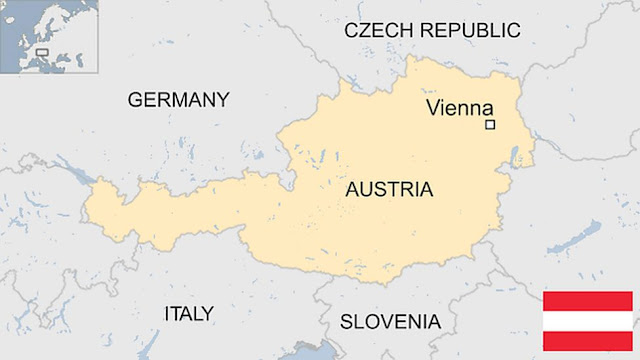Russia will retaliate against the use of uranium-encased firearm projectiles.
Wednesday, March 22, 2023. Russia will be forced to react if the collective West starts using weapons with
President Vladimir Putin said a nuclear component after talks with Chinese President Xi Jinping.
The Russian head of state made such a warning after information emerged about Britain's plans to supply Ukraine with depleted uranium shells.
"Today, it became known that the United Kingdom, through the Deputy Head of the Ministry of Defense of the country, announced the supply of tanks to Ukraine and shells with depleted uranium. "It seems that the West has decided to fight Russia on the last Ukrainian not with words, but with deeds," Putin said.
As RIA Novosti reports, US troops used depleted uranium cartridges during Operation Desert Storm, the bombing of Yugoslavia, and the invasion of Iraq in 2003. As experts note, this can lead to cancer outbreaks. According to military expert Konstantin Shivkov, such missiles should be considered a "dirty weapon": the uranium dust deposited on the ground is radioactive, highly toxic, and not subject to decontamination.
Bibliography
Depleted uranium (symbol: DU) is uranium with a lower content of the fissile isotope U-235 than natural uranium, which contains 0.72% U-235. In the past, it was referred to as Q-metal or otherwise D-38. It has a density of 19.1 g/cm3. Most of the depleted uranium produced is a by-product of the production of enriched uranium for use in nuclear reactors and in the manufacture of atomic weapons.
According to the Russian president, if all this turns out to be accurate, Russia will be forced to respond accordingly. "Meaning that the collective West has already started using weapons with a nuclear component," he explained.
British Deputy Defense Secretary Annabelle Goldie said on Tuesday afternoon that in addition to sending a squadron of Challenger 2 tanks to Ukraine, London would also transfer ammunition, including armor-piercing shells containing depleted uranium, to the Ukrainian Armed Forces.
As the head of the Russian delegation to the talks in Vienna on military security and arms control, Konstantin Gavrilov, noted, in January, Moscow had already warned that the Leopard 2, Bradley, and Marder tanks supplied by the Armed Forces of Ukraine could to carry uranium Artillery shells. Defense Minister Sergei Shoigu, in turn, emphasized that Russia "has something to answer for."
Other uses of depleted uranium
DU is also used as a counterweight in aircraft, in radiation protection during medical radiation therapy, in the construction of containers for transporting radioactive materials, in x-rays of industrial equipment, and military uses, including defensive armor and armor-piercing projectiles.
Finally, the use of DU in ammunition needs to be proven.
Biological effects of exposure to DU
Due to its toxicity, DU affects the normal functioning of the kidneys, brain, liver, and heart.
Numerous laboratory studies suggest the possibility of leukemia, genetic effects, reproductive problems, and neurological diseases due to chronic exposure.
However, DU's actual level of chronic toxicity has not been determined.
The biological half-life of uranium (the time it takes half the amount of uranium to be eliminated from the body) is 15 days.
Usage history
BELGRADE. Some fifteen tons of depleted uranium munitions fell on Serbian soil during the eleven weeks that NATO forces bombarded the Balkan country.
The targets of the more than fifty thousand bombs and missiles are estimated at one hundred and sixteen, most of which were in southern Serbia and Kosovo. After all, the bulk of the Serbian army was deployed in these areas.
It is noted that depleted uranium is placed on top of the munition to facilitate the penetration of enemy heavy military vehicles. Although the substance is weakened during the production process of the ammunition, it remains highly toxic.
Experts, however, disagree among themselves regarding the magnitude of the risk of depleted uranium to the health of the inhabitants.
A special UN commission mission to Kosovo had ruled in 2000 that there were no traces of widespread contamination in the places where bombs of this type fell. A World Health Organization (WHO) study came to the same conclusion a year later. However, British expert and WHO member Keith Bavistock admitted that this finding is inconclusive, as NATO had not made available all the data on the bombings.
Kosovo doctors, however, have a different view. "Leukemia cases among local children were 0.001% before the bombings, while today they are 1%," says Dr. Nebozsa Srbljak from the Serbian village of Mitrovica. According to him, the Albanian doctors in Pristina, with whom he works, revealed that cancer cases have increased throughout Kosovo since 1999. from cancer 20 out of 60,000", says Dr. Srbljak.
An alarming increase in cancer cases has also been observed in neighboring Bosnia-Herzegovina, where NATO forces had again used depleted uranium munitions against the Bosnian Serbs in 1995.
According to official statistics, more than three hundred residents of the Hadjisi and Han Pijesak districts of Sarajevo died of cancer from 1996 to 2000.
"This is quite a large number," comments Dr. Slavica Jovanovic. "It is, however, also an issue that no one is willing to examine," she asserts. "The residents of these districts moved to other areas after the war's end, and in Bosnia and Herzegovina, there is no will to open such a discussion," explains Mrs. Jovanovic.
Similar health problems have been reported by Italian soldiers who served in the so-called "contaminated" areas as members of the international peacekeeping force.
Several died of cancer, and their families are now trying to prove that their deaths were caused by depleted uranium.





Comments
Post a Comment
Hello, feel free to write your opinion.